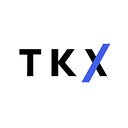EIP-3074: Empowering EOAs in the Ethereum Ecosystem | TKX weekly
by @uuwagyuu
sponsor TKX CAPITAL
Account abstraction has long been a topic of interest within the Ethereum ecosystem, aiming to empower externally owned accounts (EOAs) with functionalities typically associated with smart contracts. Unlike traditional EOAs, which rely solely on private keys for control, account abstraction allows for more dynamic control and interaction, bridging the gap between EOAs and contract accounts.
EIP-3074, set to be integrated into the Pectra upgrade, introduces mechanisms that enable EOAs to delegate transaction authority to smart contracts securely.
What is EIP-3074?
EIP-3074, recently approved for inclusion in the next Ethereum hard fork, represents a pivotal advancement in Ethereum’s protocol. This proposal aims to enhance user interactions on EVM chains by imbuing externally owned accounts (EOAs) with smart contract functionalities. Essentially, EIP-3074 bridges the gap between traditional EOAs and sophisticated smart contracts, offering users a more versatile and powerful wallet experience.
How it works?
At the heart of EIP-3074 lie two new opcodes: AUTH and AUTHCALL. These opcodes facilitate the seamless execution of transactions by enabling smart contracts to act on behalf of EOAs. The process begins with users signing a message offline, which is then transmitted to an invoker contract as a transaction. The invoker contract utilizes the AUTH and AUTHCALL opcodes to validate and execute the transaction, with the user’s address serving as the sender.
Examples
To illustrate the transformative potential of EIP-3074, consider the following examples:
- Sponsored Transactions: With EIP-3074, transactions can now be sponsored, eliminating the need for users to maintain ETH balances in their wallets for gas fees. This opens the door to broader adoption by reducing entry barriers for users who may not have immediate access to ETH.
- Batch Transactions: EIP-3074 enables multiple actions to be consolidated into a single transaction. For instance, token swaps on decentralized exchanges like Uniswap typically require separate approval and execution transactions. With EIP-3074, these actions can be combined into a single, more efficient transaction, enhancing user convenience and reducing gas costs.
- Asset Recovery: Through specially configured invoker contracts, EIP-3074 facilitates asset recovery using social recovery mechanisms. In the event of lost private keys, users can utilize social recovery protocols to regain access to their assets, providing an added layer of security and peace of mind.
Security concerns
Implementing EIP-3074 brings potential risks that must be addressed:
- Malicious Invokers: Insecure invoker contracts could lead to fund theft.
- Spending Ether Limitation: Ether in EOAs can’t be spent directly via smart contracts.
- Flash-Loan Weakness: Self-sponsoring may weaken flash-loan protection.
- Ethereum Upgrade Challenges: EIP-3074 requires a hard fork, posing coordination and compatibility challenges for future upgrades.
Summary
EIP-3074 marks a notable advancement in enhancing the Ethereum user experience. It streamlines interactions by consolidating wallets, enabling bundled transactions, and empowering EOAs with advanced features through invokers. By offering a user-friendly alternative that complements Account Abstraction, EIP-3074 contributes to the ecosystem’s ongoing evolution.
Reference
https://medium.com/r/?url=https%3A%2F%2Feips.ethereum.org%2FEIPS%2Feip-3074
https://twitter.com/0xCygaar/status/1778522744919044442
https://www.youtube.com/watch?v=AffftIs6XFE&ab_channel=ChainSafe
